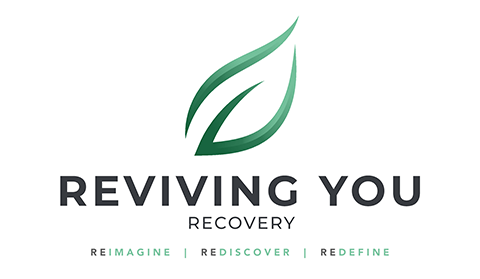The Life Skills Clients Need to Sustain Recovery

Healing from addiction and thriving in recovery requires that a person heals their whole body and mind. At Reviving You Recovery, treatment incorporates healing while teaching clients life skills that help them to have more success after leaving treatment. Life skills not only help an individual to stay sober long-term, but they also help them to build a life where they can manage their mental health and physical well-being. This gives clients the opportunity to leave addiction treatment with a foundation of skills that facilitate change in every aspect of their lives.
Healing Through Learning Life Skills
When a client enters treatment at Reviving You Recovery, they begin the process of rebuilding their lives. This entails many aspects of healing, such as addressing trauma, family dysfunction, and other underlying reasons that they have struggled with addiction.
However, it also includes learning life skills that help them take responsibility for their needs and stay sober. In treatment at Reviving You Recovery, clients learn self-care, financial skills, and trigger management.
Self-Care
Being able to care for themselves is vital in a person’s recovery from addiction. In fact, self-care has been shown to be essential for preventing relapse. This is because self-care is the act of acknowledging needs and taking steps to address them before they become a larger issue. For many individuals who struggle with addiction, the answer to many of life’s challenges has been substance abuse. However, self-care provides alternative options to cope with challenges and maintain good mental and physical health.
In treatment for addiction at Reviving You Recovery, self-care practices taught to clients include nutrition, exercise, and sleep. These pieces put together help clients to heal physically. However, they also teach clients the skills they need to continue with self-care in their lives after treatment. In doing so, clients learn valuable skills to take home. These can be a foundation for caring for their own needs after treatment.
Financial Responsibilities
It is common for individuals struggling with addiction to run into financial issues. This is generally related to the changes that occur in the brain due to addiction and substance abuse. However, taking financial responsibility is also a skill. Learning how to budget and stick to a budget takes time. Clients in addiction treatment who learn how to budget and take financial responsibility have the opportunity to break the cycle of financial issues they have had in their lives.
Learning financial skills like budgeting includes setting goals, planning, and executing these goals. For clients who have struggled with addiction, this is often very difficult. However, when clients learn this skill, their confidence increases. In total, it helps clients learn to care for their needs in a necessary way to live independently after treatment.
Get Your Questions Answered Now
Trigger Management
Individuals who have struggled with addiction often have triggers. Triggers are specific locations, people, emotions, or situations that bring cravings to use substances. For example, going to a bar is a common trigger for individuals who struggle with alcohol addiction. Triggers are unique to each person. However, they are very real and strong connections that cause a person to take actions that can de-rail their recovery.
Managing triggers is an important part of recovery. It is a vital life skill that gives clients the confidence to leave treatment knowing they can stay sober. With therapeutic modalities like cognitive-behavioral therapy (CBT) and others, clients learn to acknowledge the existence of their triggers. Then, they learn how to make other choices or avoid triggers when it is necessary to prioritize their sobriety.

How Life Skills Help Clients Stay Sober
In treatment for addiction, clients are in a highly controlled environment. This environment is designed with their needs in mind. Therefore, it supports their mental health, physical health, and sobriety. However, when a client leaves treatment, they are back in a world that is not designed in the same way. Clients will encounter many stressors and challenges that, without life skills, can throw them off balance and threaten their sobriety.
Fortunately, life skills can help. Life skills give clients a sense of confidence. This is because when a client is facing stress, they have tools that help them to manage it. Rather than needing to reach for substances as a last resort, they can lean on self-care, community, and problem-solving skills that give them a healthier out. However, it is important to note that these life skills work only when a client keeps their sobriety in mind. Making recovery and sobriety a primary focus in a person’s life helps them to do so. When they do, life skills are directed to help maintain sobriety. Therefore, clients build the skills that will help them the most in being successful in their lives after treatment.
Addiction is a disease that impacts a person’s entire life. Getting treatment for all kinds of addiction is important. Treatment gives clients the opportunity to heal physically and mentally and to build skills that will support them in creating a happier and healthier life. At Reviving You Recovery, treatment not only addresses the physical addiction. We also consider what skills clients need to learn and improve in order to stay sober. This is why we incorporate life skills into our program. We help clients learn to budget, eat healthy, and manage triggers that will come up in their lives. If you are interested in learning more about our treatment programs, call us today at (951) 723-7598.
We Accept Most Insurances
We are in network with:









We know insurance coverage can be a source of uncertainty for people. We make sure you have all the information necessary. The great news is health insurance can potentially cover the total treatment costs. If you don't have insurance, we offer cash payment options for our treatment programs and are committed to working with clients regardless of financial situations.
